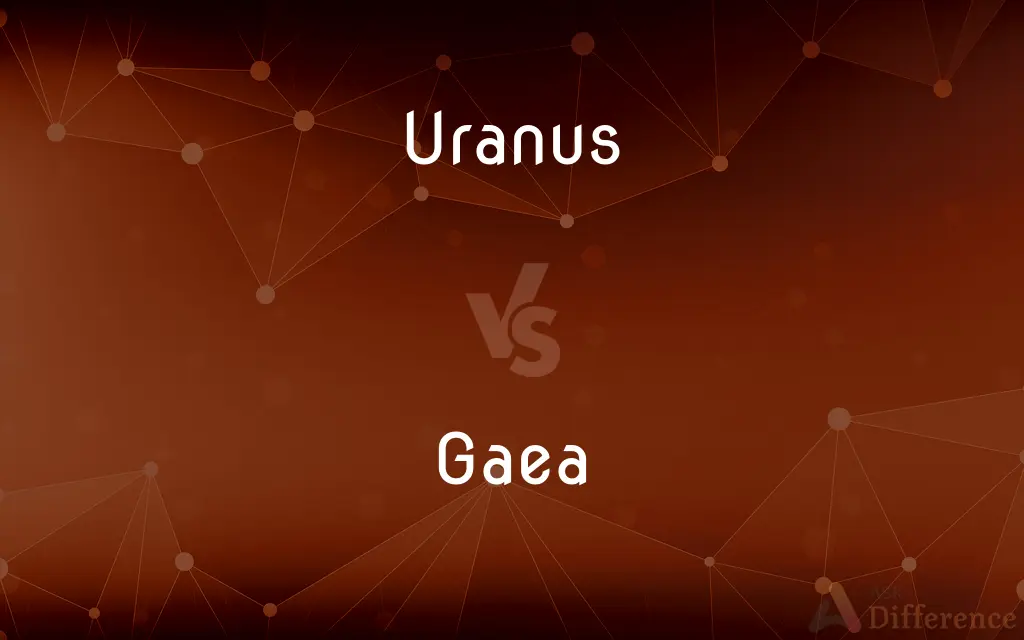Uranus vs. Gaea — What's the Difference?

Difference Between Uranus and Gaea
ADVERTISEMENT
Compare with Definitions
Uranus
Uranus is the seventh planet from the Sun. Its name is a reference to the Greek god of the sky, Uranus, who, according to Greek mythology, was the great-grandfather of Ares (Mars), grandfather of Zeus (Jupiter) and father of Cronus (Saturn).
Gaea
The goddess of the earth, who bore and married Uranus and became the mother of the Titans and the Cyclopes.
Uranus
Greek Mythology The earliest supreme god, a personification of the sky, who was the son and consort of Gaea and the father of the Cyclopes and Titans.
Gaea
The goddess of the earth, considered as a personification of the earth. According to Hesiod she was the first-born of Chaos, and mother of Uranus, Pontus, Cronus and the Titans in ancient mythology.
Uranus
The seventh planet from the sun, revolving about it every 84.01 years at a mean distance of approximately 2.9 billion kilometers (1.8 billion miles), having a mean equatorial diameter of 51,118 kilometers (31,763 miles) and a mass 14.6 times that of Earth.
ADVERTISEMENT
Gaea
(Greek mythology) goddess of the earth and mother of Cronus and the Titans in ancient mythology
Uranus
The son or husband of Gaia (Earth), and father of Chronos (Time) and the Titans.
Uranus
One of the primary planets. It is about 1,800,000,000 miles from the sun, about 36,000 miles in diameter, and its period of revolution round the sun is nearly 84 of our years.
Uranus
(Greek mythology) god of the heavens; son and husband of Gaea and father of the Titans in ancient mythology
Uranus
A giant planet with a ring of ice particles; 7th from the sun
Share Your Discovery

Previous Comparison
Award vs. Certificate
Next Comparison
Amount vs. Buttload













































